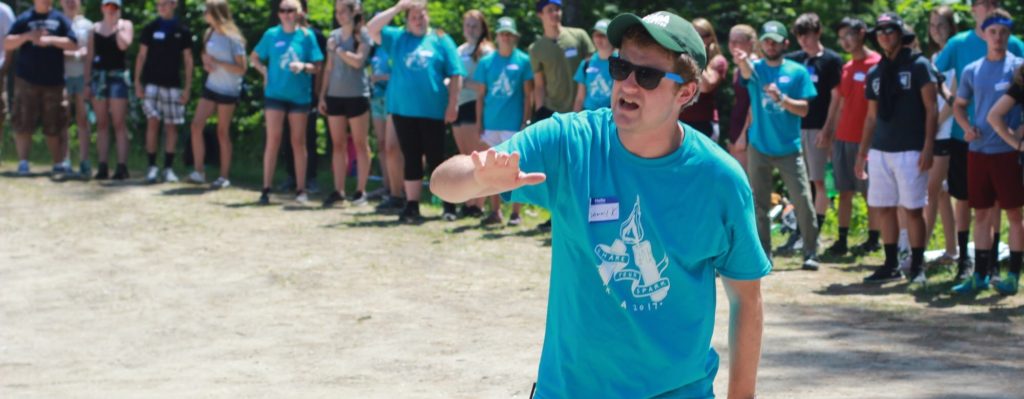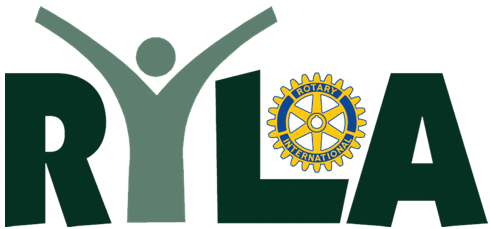
by Sam Klemarczyk – RYLA Programs Director
My dog Mowgli turned two years old on Monday, and recently I have been looking back on our first year together. I named him after the lost boy from my favorite childhood movie, “The Jungle Book”, and he has certainly lived up to the name. He is an energetic, adorable, “play with me now, please!” labrador-husky mix, and he has brought so many vital lessons into my everyday life. In every new adventure, training session, or work day, Mowgli finds a way to remind me of a time when I when I was first growing as a young leader–a time when I learned a few important principles. These principles impacted my path in life more than I ever could have imagined, and they continue to guide me both personally and professionally. Anyone know the principles I am talking about? YES, RYLA’s Basic Principles of Leadership! In this piece, I’d like us to refer to these principles as “The Bare Necessities” just as Baloo The Bear might. During my time as an Experiential Educator, I have realized that these bare necessities are applicable for all ages, communities, and goals. No matter where we are, what we are doing, or why we are doing it, if we are following these principles, then we are bound to make a positive impact. It has been nearly 8 years since I attended RYLA for the first time in 2011. Is it hard to believe that I still look back to those “bare necessities” I learned about for guidance? When I was a student, and now as a young professional, I still always tried to keep those principles close in mind.
Accomplish Your Mission
Mowgli’s mission in life consists of running, eating, sleeping, and running some more. If we are lucky, we might get to accomplish that mission and release all his energy for that day with enough training and exercise. Sometimes, the mission isn’t always accomplished to the fullest. It can be a work in progress, but what he has taught me is to never lose sight of what we are working towards, and to consistently recognize progress, so that we can continue to get better every day.
This has become a crucial lesson in my development as an Experiential Educator. In order to successfully meet the goals of each group I work with, I need to intentionally choose which games, initiatives, and low or high elements we will use to best fit the mission. Is the activity too hard? Does it fit their goals? Are they mentally, physically, or emotionally ready to take on that task? Many times, these challenges will get them out of their comfort zone, allowing them to reach their goals and accomplish those missions. However, there have been many times when those challenges do not have the impact I was imagining, and that allows me the opportunity to reflect, change, and grow to be a better facilitator.
Take Care of Your People (And Furry Friends!)
My sister Lucy recently asked me, “what is your favorite part about finally having a dog?”. After some thought, I told her that it was two moments which happen nearly every day. The first is when I am woken up by Mowgli and he has the excitement of a child on Christmas morning. The second is anytime I walk through the front door. His energy and enthusiasm for life itself has rubbed off on me, and I am grateful for that every day. In this way, Mowgli takes care of me just as much as I care for him.
I think that same dynamic is why I have grown to care so deeply about our RYLA Program. Our program has an incredible reach in our Rotary District, and dedicating my role to improving our staff and our abilities is putting that care in action. Taking care of your people is at the heart of being a servant leader. My perspective is that the principle ‘Take Care of Your People’ has never meant, that I am responsible to take care of others because I am “better” than them. To me, it has always meant they are “mine” because I am “theirs” first. We belong to the same communities, whether that be local or global, and that makes us all connected. It also makes us all responsible to create positive change for each other. RYLA showed me that just by being connected, we were all a part of something bigger than ourselves. Shaping future students and leaders in our communities as a facilitator is a privilege, and if at the end of a program my participants are more likely to lead and teach with empathy and compassion for others, than that is a job well done in my book.
Ensure What’s Done is Right, and What’s Right is Done.
In order to form healthy habits within ourselves, we must develop a strong, and repeated, commitment to those habits. Raising a puppy is different from developing your ethics, but it requires some of the same discipline. Having Mowgli now means that my routine has to include meeting his needs. Early morning runs and lots of time outside, even if it is pretty darn cold, are a non-negotiable for him to have a happy life.
Doing the right thing might mean different things to me than it will to others, or to Mowgli. So how do I know when you are doing what is right by someone else? The “Golden Rule” teaches us that you should treat others how you want to be treated. But, if we are ensuring that what’s right is done, should we behave according to what we might want? I was made aware of the “Platinum Rule” by a mentor in college, which encourages that we should treat others how they want to be treated. It is a simple change, but can make a big difference in our mindsets.
We have done the same at Camp Hinds to try to fit the needs of our staff and the population we work with. Throughout the RYLA offseason, we host at least three different trainings every year, a practice which was put in place so that our newer staff members could be well versed in our curriculum and confident in their abilities–to ensure they could do what was right, and see that what’s right is done. Two of our programs, Ethics and Community Build, challenge young leaders to engage in crucial conversations around topics like bullying, privilege, and social justice. The values our curriculum teaches is always in parallel with our bare necessities.
RYLA has given me the opportunity to lead and work in a life I love. Working in the Experiential Education industry has surrounded me with many friends, colleagues, and mentors, who I continue to learn from and am always grateful for. I have no doubt that others who have been through this program have the same feelings of gratitude for what RYLA has given them both personally and professionally. So I ask you to look for those bare necessities in your life- how are you using RYLA’s Basic Principles of Leadership?
Sam Klemarczyk is from Exeter, NH. He attended RYLA as a camper in June 2011 and graduated from Exeter High School in 2013. While attending the University of Rhode Island, he was an active servant leader in his college’s Rotaract Club and the community’s local Wakefield Rotary Club. After graduating from the University of Rhode Island in 2017, he began facilitating leadership programs at challenge courses all over New England. Now, Sam is a Lead Trainer and Facilitator for Project Adventure in their Youth and College Programs division, as well as a local Rotarian with the Exeter Rotary Club.
